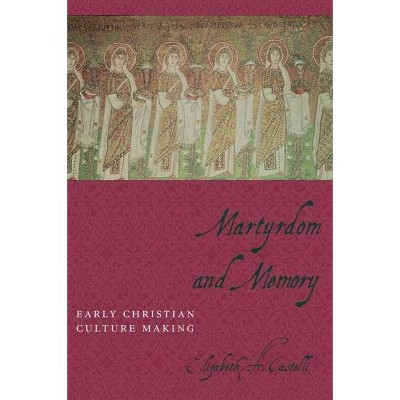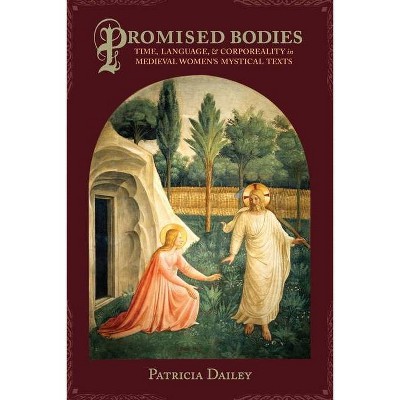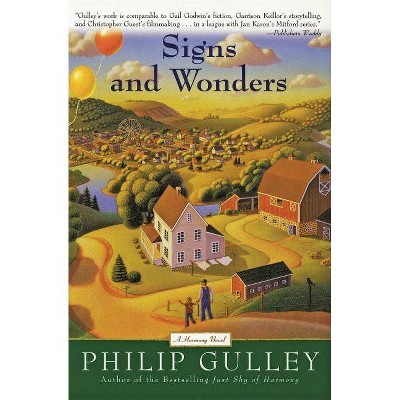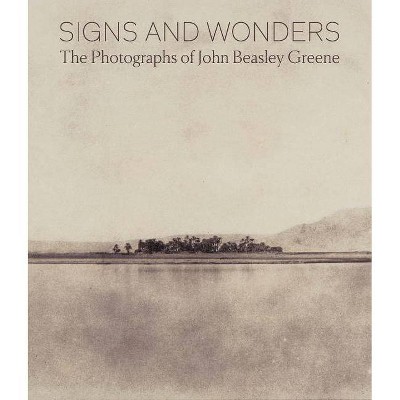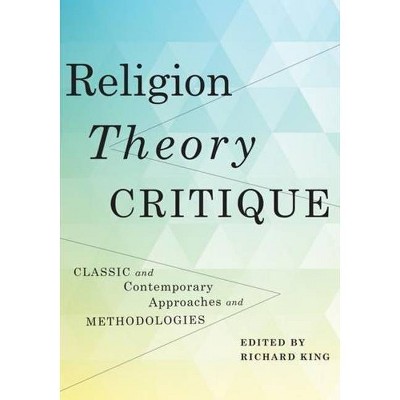Signs & Wonders - (Gender, Theory, and Religion) by Ellen Armour (Paperback)
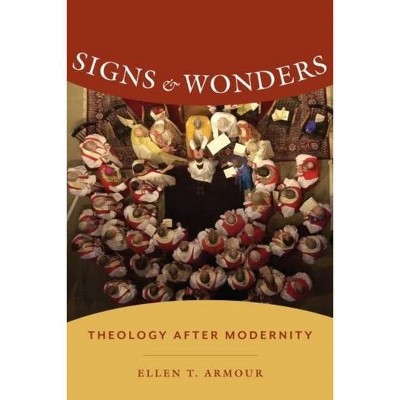
Similar Products
Products of same category from the store
AllProduct info
<p/><br></br><p><b> About the Book </b></p></br></br>Lays the groundwork for a theology and philosophy of life better suited to our (post)modern moment: one that owns up to the vulnerabilities that modernity sought to disavow and better enables us to navigate the ethical issues we now confront.<p/><br></br><p><b> Book Synopsis </b></p></br></br>We are told modernity's end will destabilize familiar ways of knowing, doing, and being, but are these changes we should dread--or celebrate? Four significant events (and the iconic images that represent them) catalyze this question: the consecration of openly gay Episcopalian bishop Gene Robinson, the mistreatment of prisoners at Abu Ghraib prison, the politicization of the death of Terri Schiavo, and the disastrous response to Hurricane Katrina. <p/>Framed by an original appropriation of Michel Foucault, and drawing on resources in visual culture theory and the history of photography, Ellen T. Armour explores the anxieties, passions, and power dynamics bound up in the photographic representation and public reception of these events. Together, these phenomena expose modernity's benevolent and malevolent disruptions and reveal the systemic fractures and fissures that herald its end, for better and for worse. <p/>In response to these signs and wonders, Armour lays the groundwork for a theology and philosophy of life better suited to our (post)modern moment: one that owns up to the vulnerabilities that modernity sought to disavow and better enables us to navigate the ethical issues we now confront.<p/><br></br><p><b> Review Quotes </b></p></br></br><br><i>Signs and Wonders</i> is a brilliant exploration of the imminent passing of the modern "Man" and what may emerge from it. Focusing on particular events in recent history, Armour guides readers to perceive the signs of strain in a system that has defined Man in his relation to his divine, animal, and raced/sexed others--while pointing us toward a new ontology of vulnerability. The use of photographs to approach the events is innovative and powerful; the analyses are insightful and challenging. This is an outstanding book.--Mayra Rivera Rivera, Harvard Divinity School<br><br>There are few if any books like this in philosophy. The accessibly written text will appeal to anyone with an interest in modernity and its demise. Armour's unusual and important engagement with photography is so compelling that it is difficult to put <i>Signs and Wonders</i> down.--Ladelle McWhorter, University of Richmond<br><br>This provocative work combines ideas from several disciplines, revealing new approaches to understanding and analyzing cultural events and the nature of human existence. <i>Signs and Wonders</i> will be an important addition to the discourse on numerous topics such as the role of theology in modern culture, the role of photography in enforcing bio-power's regulation of abnormality, and the role of vulnerability in making meaning of our lives.--Gail Hammer, Gonzaga University School of Law<br><br>Want to make a difference in the world? Read this book first! In Signs and Wonders, Armour troubles the way we have become comfortable in our own skins and presumably 'right' with the world by devaluing sexed, raced, and disabled others. As she studies each telling photographic icon, subjective mastery begins to crack under the pressure of philosophical reflection. Through the cracks, we are affectively and ethically invited to revalue what modern subjectivity warded off--vulnerability, flesh, and an awareness that materiality is social all the way down.--Sharon Betcher, author of <i>Spirit and the Obligation of Social Flesh</i><br><br>With characteristic subtlety and care, Armour offers a reframing of philosophical theology in four movements that is--finally--a clear lens through which we can see and evaluate (and touch) the profound challenges that face the world in this time. No mere tourist ride through signifying images of modern crises and changes, <i> Signs and Wonders</i> is an important heuristic platform on which any serious philosophical and theological engagement with the present should now stand.--Laurel C. Schneider, Vanderbilt University<br><p/><br></br><p><b> About the Author </b></p></br></br>Ellen T. Armour is the E. Rhodes and Leona B. Carpenter Associate Professor of Theology at Vanderbilt Divinity School. She is the author of <i>Deconstruction, Feminist Theology, and the Problem of Difference: Subverting the Race/Gender Divide</i> and coeditor, with Susan St. Ville, of <i>Bodily Citations: Judith Butler and Religion</i>.
Price History
Price Archive shows prices from various stores, lets you see history and find the cheapest. There is no actual sale on the website. For all support, inquiry and suggestion messagescommunication@pricearchive.us
